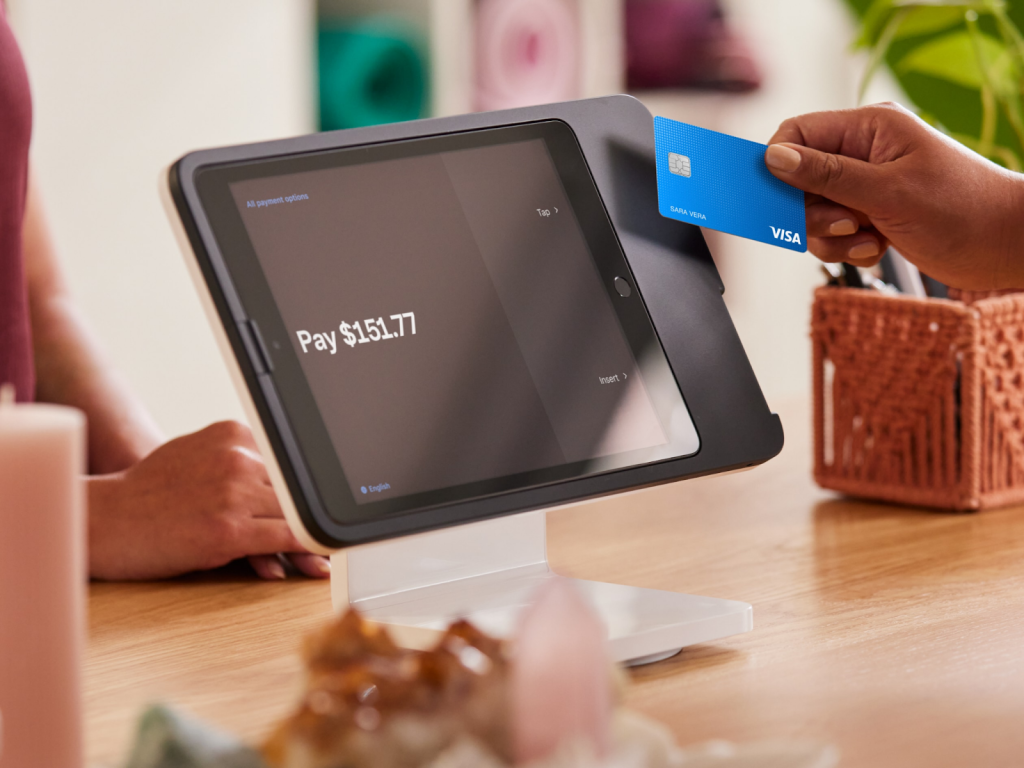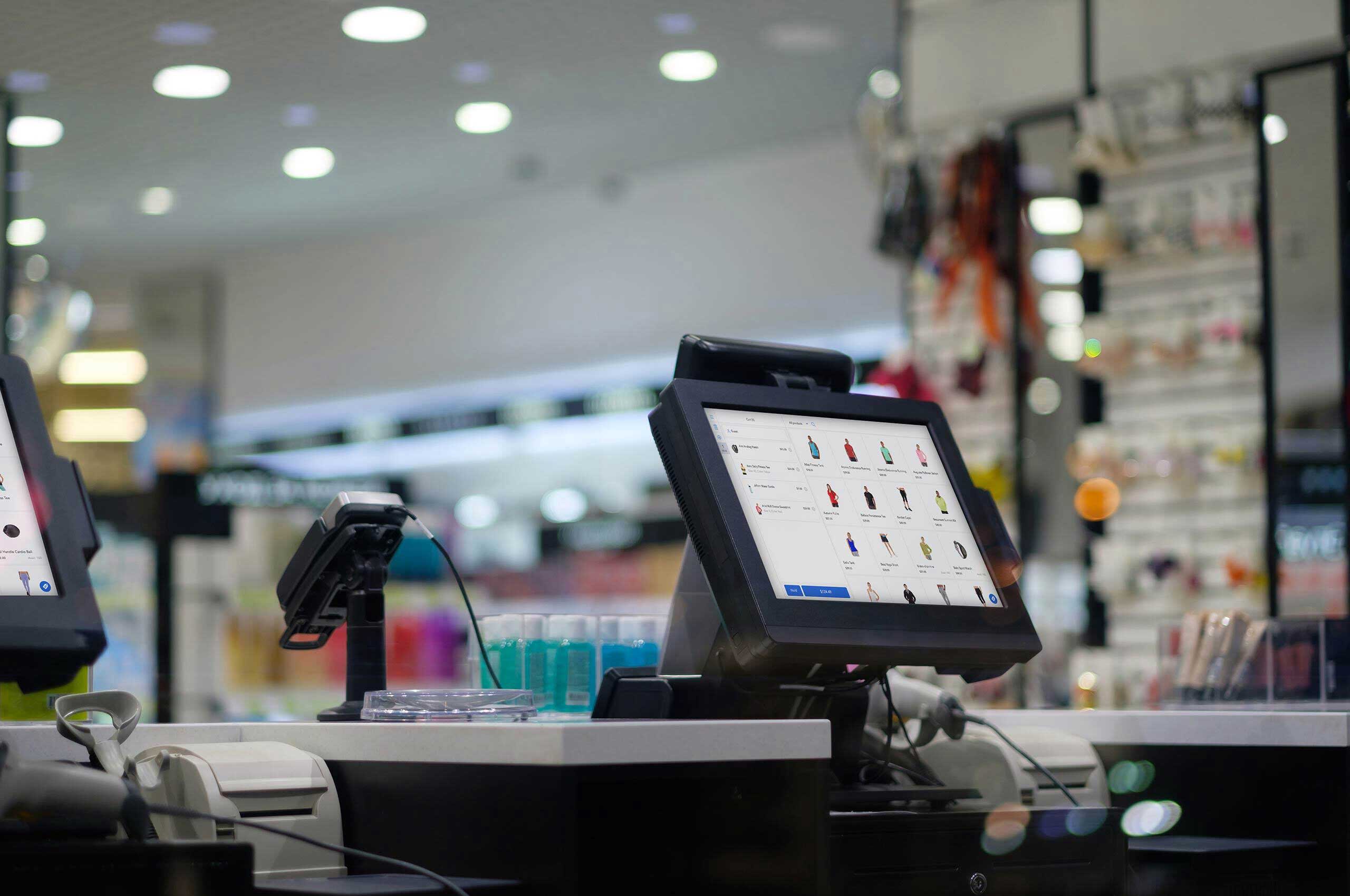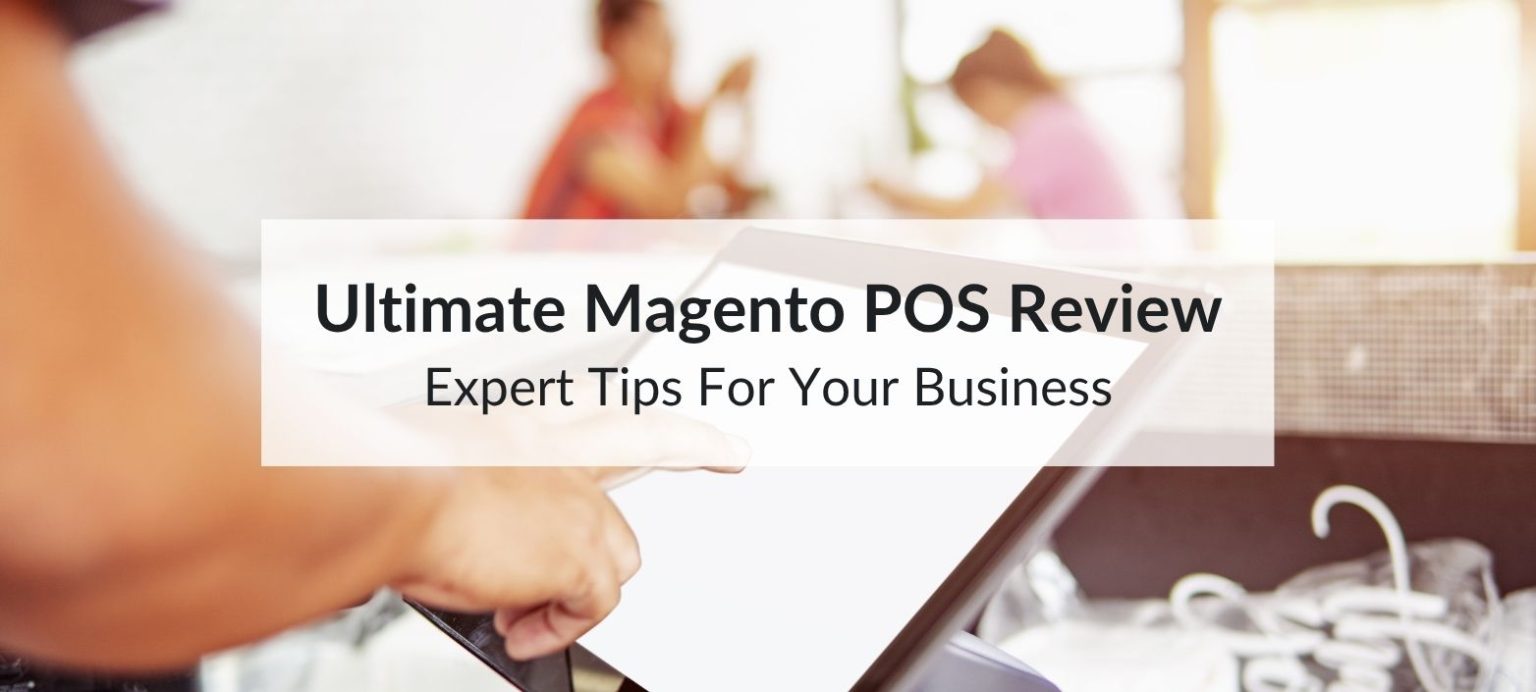If you run a retail store using the Magento platform, you’ve probably come across its point-of-sale solution. Designed to seamlessly connect your online store with your physical locations, Magento’s POS system lets you manage sales, inventory, and customer data in one place. In this Magento POS review, we’ll explore how it helps streamline operations and improve the overall shopping experience for both merchants and customers.
Table of Contents
Key Features of Magento POS for Retail Success
1. Native Integration with Magento Ecommerce

One of the best features of Magento POS is its seamless integration with your existing Magento 2 shop. Your goods, orders, and inventory information are all updated automatically and in real time.
This means you don’t have to switch between different programs or enter the same information twice. You get a seamless digital experience when your customers can shop in-store or online, and everything stays in sync. Thus, Magento native POS solution gives you the best performance and takes advantage of Magento resources and benefits without any extra costs for 3rd-party connectors and support.
2. Real-Time Inventory & Order Management
It can be hard to keep track of inventory in various places, but Magento POS makes it easy. It quickly updates the amount of stock no matter where a sale takes place, online or off.
Plus, the best POS for Magento 2 can handle complicated orders, such as returns, split orders, and partial packages. This keeps you from making mistakes made by people and keeps you from running out of popular things, which studies show can cost you up to 30% in lost sales.
3. Customizable & Scalable POS System
Magento POS knows that every business is different. It’s easy to use, and you can change the way it works to fit your business. Also, it’s made to grow with you, whether you have one place or dozens. This makes it a good choice for companies of all sizes.
4. Offline Mode & Hardware Compatibility

Without Magento POS, your sales can still happen even when the internet goes down. You can still make sales even if you’re not online. It will sync everything for you when you join again.
Plus, it works well with common shop tools like cash registers, scanners, and printers for records. It will always be simple and quick to check out this way.
5. Customer Management & Loyalty Features
Magento POS can also help you get to know your users better. You can keep thorough profiles, keep track of what people have bought, and run loyalty programs with gift cards and reward points. These small, individual touches can really pay off. Some stores see up to 15% – 20% more repeat sales after these touches.
6. Insightful Reporting & Performance Tracking
It’s easier to run your business when you have clear, real-time info at your fingertips. Magento POS gives you thorough reports on sales, inventory, and how well your employees are doing. In the end, this helps you see trends, buy things smarter, and make your team work better, all of which are good for your bottom line.
Magento POS Pricing & Payment Models: All You Need to Know
Magento POS pricing can vary widely depending on the provider, features included, and how the software is delivered. Unlike some plug-and-play POS systems, Magento POS solutions are often more customizable, and that affects cost.
Common Pricing Ranges
On the market, you’ll find a range of prices for Magento-compatible POS systems:
- Basic solutions (limited features, plug-ins): from $29–$99/month
- Mid-tier systems with multi-store sync, inventory tools, and limited customization: from $100–$300/month
- Enterprise-grade POS like Magestore POS (fully integrated with Magento and tailored to your business): usually starts at $4,000+ for a one-time license or custom quote based on your setup
Payment Models
Most Magento POS providers follow one of these payment models:
1. Subscription-based (SaaS)
- Monthly or yearly payments
- Lower upfront cost
- Ideal for smaller businesses or those new to POS
2. One-time license with lifetime usage
- Pay once, use forever
- Higher upfront cost, no recurring fees
- Better long-term value for growing or large businesses
- Example: Magestore POS offers a Magento POS free trial, a one-time license fee, tailored to your business scale and needs
3. Custom pricing (based on modules, users, and store count)
- Most common for enterprise users
- Includes personalized onboarding, support, and custom development
- Great for businesses with complex operations
Why Pricing Varies
Magento POS isn’t one-size-fits-all. You’re paying for:
- Deep Magento integration (not just an add-on)
- Omnichannel capabilities
- Customization options
- Support for large product catalogs and multi-location setups
Who Should Use Magento POS? Best Fit Industries & Business Types

Magento Point of Sale (POS) is designed for companies that want their online and in-store sales to work together seamlessly. It is easy to use this POS system if you have a Magento-powered store or want to combine your real and online sales.
It works especially well for stores that want to manage their inventory in real-time, operate multiple locations, and provide each customer with a personalized experience.
Best Fit Industries
- Fashion & Apparel: Fast-changing inventory and seasonal collections require up-to-date stock management. Magento POS lets you track styles, sizes, and colors across all channels effortlessly.
- Electronics & Gadgets: Managing high-value items with detailed product specs demands accuracy and real-time synchronization to prevent stockouts or overselling.
- Health & Beauty: Loyalty programs and customer profiles are essential here. Magento POS supports customer rewards and personalized promotions seamlessly.
- Home & Furniture: Complex product variants and delivery options require flexible order management, something Magento POS handles with ease.
- Sports & Outdoor: Businesses with multi-location stores benefit from centralized inventory and order tracking, ensuring stock is allocated efficiently.
- Specialized and regulated industries: Magento POS is well-suited for niche markets such as vape shops, cannabis shops, gun shops, adult product stores, and golf shops, as it can be easily customized to meet their specific needs and comply with relevant standards.
Best Fit Business Types
Many types of stores can use Magento POS. It is flexible and scalable, so various business models can use it. Magento POS helps you make sales easier and give your customers a better experience, no matter how big or small your business is. These types of businesses will benefit the most:
- Omnichannel retailers: The people who sell things both online and in real life will gain the most. Magento POS makes sure that all sales channels share the same inventory, pricing, and customer information.
- Franchise chains and businesses with multiple locations: Businesses with more than one location can manage them all from one place. Real-time updates to inventory, promotions that only work in certain locations, and consistent customer experiences are all possible with Magento POS.
- Pop-up shops and event retailers: Magento POS’s cloud-based and flexible features make it easy for temporary or mobile businesses to set up quickly, make transactions go smoothly, and keep up with their main store.
- Wholesale & B2B sellers: Magento POS is a great choice for businesses that sell to other businesses or in bulk because it supports bulk orders, tiered pricing, and account-based customer management.
Introducing a Magento Native POS Solution
Magestore POS is built exclusively for Magento merchants. By syncing online and offline stores in real time, it keeps inventory accurate without the need for third-party connectors. With fast checkout, powerful omnichannel capabilities, and the flexibility to scale and customize, Magestore is an ideal choice for retailers on Magento, whether you operate a single store or manage a growing chain.

Key Features
- Real-time sync: Keep inventory updated instantly between online and offline stores
- Fast checkout: Serve customers quickly with transactions under 15 seconds
- Omnichannel support: Manage multiple stores, loyalty programs, order fulfillment (BOPIS, ship-from-store, etc.), and more
- Flexible devices: Works smoothly on desktops, tablets, and a wide range of retail hardware
- Scalable growth: Add unlimited locations, devices, users, and products—without extra fees
- Customization: Tailor the POS to match each retailer’s unique business needs
- Payment integration: Connect with various payment providers
Magestore POS is compatible with:
- Magento Open Source (Community Edition): 2.2.6 – 2.2.11, 2.3.x, 2.4.x
- Magento (Adobe) Commerce Edition: 2.3.x and 2.4.x
Magento POS vs Other POS Systems: Key Differences Compared
Here’s a quick side-by-side look at the key considerations when comparing Magento-native POS systems and standalone POS platforms to help you decide which one is better for your business.
Considerations
Magento Native POS
Standalone POS Systems
E-commerce Integration
Deep, native integration with Magento 2 platform; seamless syncing of products, orders, and customers
Usually requires ready-made plugins or integration services; integration may be limited or delayed
Real-Time Sync
Real-time, instant, and consistent Magento inventory and order synchronization across online and offline channels
Data is scheduled to sync once a day and may be subject to delays.
Customizability
Highly customizable to fit Magento’s architecture and business workflows
Customization is limited. Standalone POS platforms rely on built-in features, which may not align with the specific needs of Magento businesses or fully utilize their flexible eCommerce capabilities.
Pricing Model
Magento-native POS has lower long-term costs and a one-time price.
Varies widely; may include upfront fees, subscriptions, transaction, third-party support and connectors charges
Scalability
Designed to handle large catalogs and multi-store setups within the Magento ecosystem
May not scale well with large Magento catalogs or multi-store operations
Offline Mode
Built-in offline capabilities with automatic sync when online
Offline features vary; some standalone systems may lack robust offline support
System Compatibility & Flexibility
Integrate with many Magento extensions, third-party tools, anâd devices (PCs, tablets, and phones). Allows you to choose from a wide range of payment gateways.
Varies by provider; may require additional setup for full hardware support. Usually only allow iPad or tablet use. Could mess up Magento installations and limit payment options because of provider lock-in.
Support & Updates
Support tailored for Magento merchants, regular updates aligned with Magento releases
Depend on third-party vendors, which can vary in quality
Final Verdict
This Magento POS review has covered the software’s best features and pricing options. As a trusted partner in the Magento ecosystem, we confidently recommend Magestore POS for businesses seeking a seamless and scalable point-of-sale solution. Purchasing a point-of-sale system developed for the Magento platform is a great way to improve efficiency, cut down on mistakes, and increase sales in-store and on the web.
What really sets Magestore POS apart is how it brings your online and offline operations together, real-time sync, smooth checkouts, and full control over inventory, all in one place. It’s built to scale with you, whether you’re just getting started or managing multiple storefronts. Your customers’ happiness and the ease of their checkout experience are on the line, so take your time comparing your alternatives and picking the one that’s best for your company.

